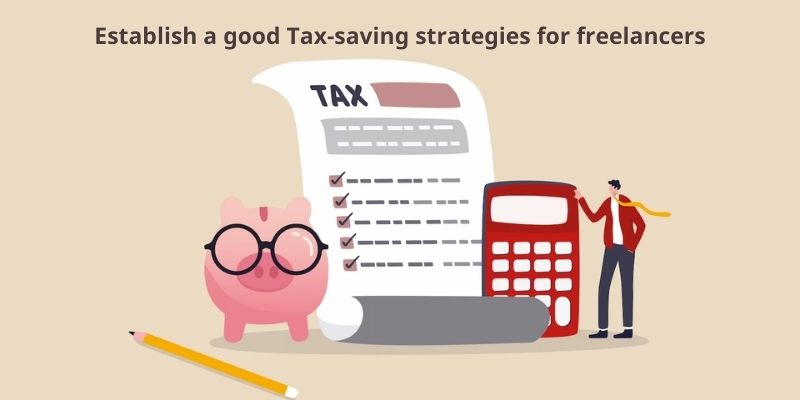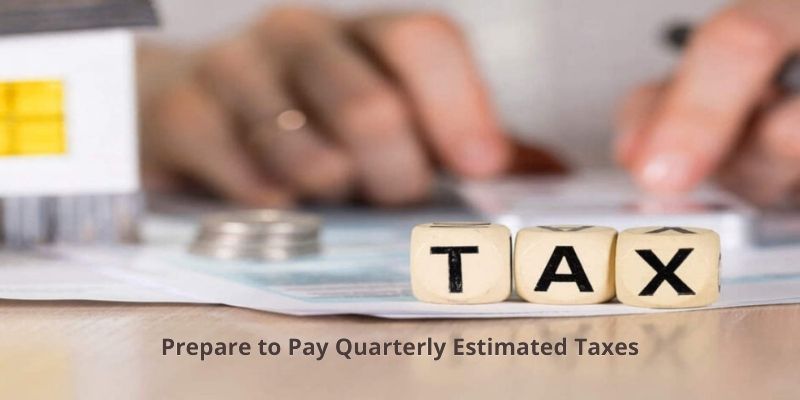Although becoming a freelancer and working for yourself is an exciting notion, it’s not only about escaping from a boss and landing your dream customers. Behind-the-scenes tasks like creating effective plans for saving money, lowering taxes, and filing your own taxes as a self-employed professional are part of running a business. Every self-employed contractor should take the time to learn how to file their taxes as independent contractors. seao.info will help you answer the Top 7 Advices Tax-saving strategies for freelancers through the article below.
Establish a good Tax-saving strategies for freelancers
One of the finest tax-saving strategies for freelancers is to plan ahead and get off to a good start. Choose a percentage and stick to it when determining how much money to set away for taxes. Laura Adams, a personal financial expert, urged self-employed company owners to set aside between 25 and 30 percent of their income for taxes.
Nobody wants to be taken by surprise with a high tax bill and no savings. It is straightforward to write a check for quarterly taxes and to compensate any underpayments when filing annually by setting away a portion of each dollar earned. – Tax-saving strategies for freelancers.

Keep Excellent Records
It’s one of the tax-saving strategies for freelancers. Early on, make an investment in quality accounting software that can benefit you tax season. Using software that links to your company’s bank account and outside payment processors like Stripe or PayPal may be beneficial.
Set aside time each month to reconcile your accounting software with the cheques, ACH deposits, and other incoming monies. Quickbooks, Wave, Xero, and GoDaddy Bookkeeping are a few examples of tools that may make it simple and quick for a freelancer to set up their accounting.
As you find out how to pay taxes as a 1099 contractor, keeping these documents can make reporting your profits to the IRS and your state revenue office simpler. Because it outlines your annual income and expenses, you may utilize this information to make crucial business decisions.
Prepare to Pay Quarterly Estimated Taxes
Freelancers are required to pay quarterly estimated taxes if they anticipate owing at least $1,000 in taxes. Good recordkeeping and accounting software come in helpful in this situation.
Your accountant may provide you credits depending on your prior year’s earnings if you previously filed tax-saving strategies for freelancers. To pay your anticipated taxes, you can use those credits or do your own calculations.
To stay on top of your tax responsibilities, you should make projected quarterly tax payments. You can get hit with a hefty bill or possibly tax penalty penalties if you don’t pay your IRS quarterly installments. Tax-saving strategies for freelancers.

Learn About Deductions – Tax-saving strategies for freelancers
There are several deductions available to freelancers. When you sum this up over the course of a year, it can drastically reduce the amount of freelance job taxes you owe.
It should be simple to develop deduction categories that you can analyze and total at the end of each year if you’re maintaining solid records. Typical deductions for independent contractors include:
Depending on how much of their internet usage is for business, a percentage of their internet bill.
- A percentage of their rent or mortgage payments determined by the home office’s square footage in relation to the rest of their living quarters.
- All costs associated with educational resources, such as books, classes, coaching, and conferences
- Fees for business-related software, including accounting or invoicing programs
- Ask your accountant for advice if you’re unsure about something being deductible.
Get a Separate Business Bank Account and Credit Card
From the beginning, conduct your business as a business. Open a company credit card and bank account. Don’t utilize your personal finances to make business-related purchases; only accept payments to that account. By doing this, you may have clearer records and prevent the appearance of money being mixed up.
From the corporate bank account, transfer money to your personal bank account for yourself. Before you pay yourself anything, don’t forget to set away some of your earnings for taxes.
Make that the name on the appropriate bank account or credit card matches the name on your company’s legal name, if it has one, such as an LLC.
Structure Your Business Properly
Your company is set up as a sole proprietorship by default until you formally file documents to the contrary. Operating as a sole proprietor has no legal or tax advantages, but it’s a quick way to get started as a freelancer.
To assist independent contractors in deciding if an S-Corp is better suitable for their circumstances, Taxhub provides an S-Corp calculator.

Hire a Good CPA – Tax-saving strategies for freelancers
For a freelancer, a good CPA is worth their weight in gold. They’ll file your taxes for you and if you are audited by the IRS, they’ll be able to represent you and give information to the IRS. Your tax status can worsen as your business expands.
Having a specialist at your side to help you deal with any unforeseen circumstances is highly beneficial. They can also provide you advice on how to make better future plans, such as how much money to put aside for retirement.
When it comes to taxes, a seasoned CPA who is familiar with self-employed tax difficulties can assist you in maximizing every deduction. As your income increases, you may use them as a crucial resource when making important decisions for your company.
The above article is a summary of 7 Tips Tax-saving strategies for freelancers and hope you have the information you need


